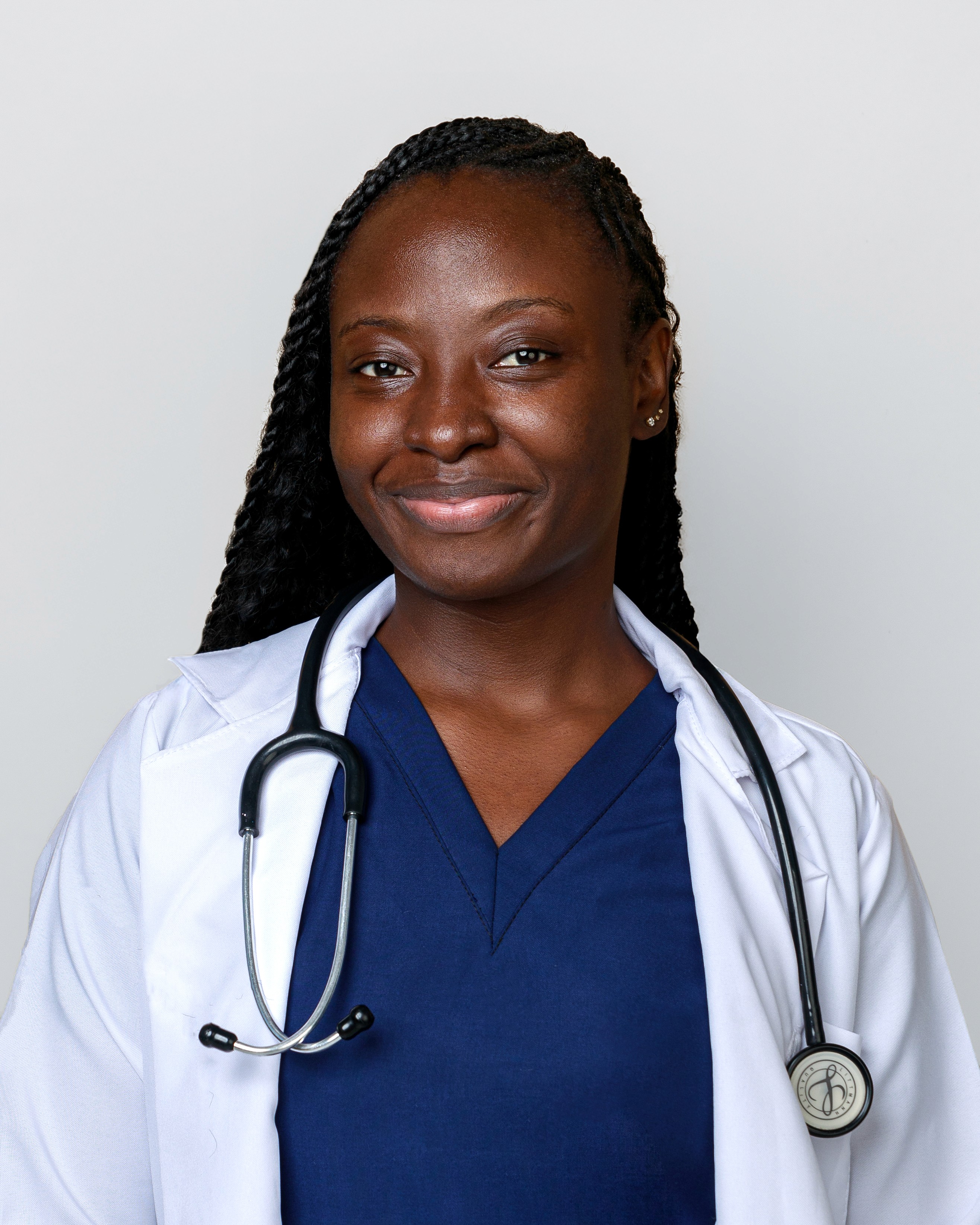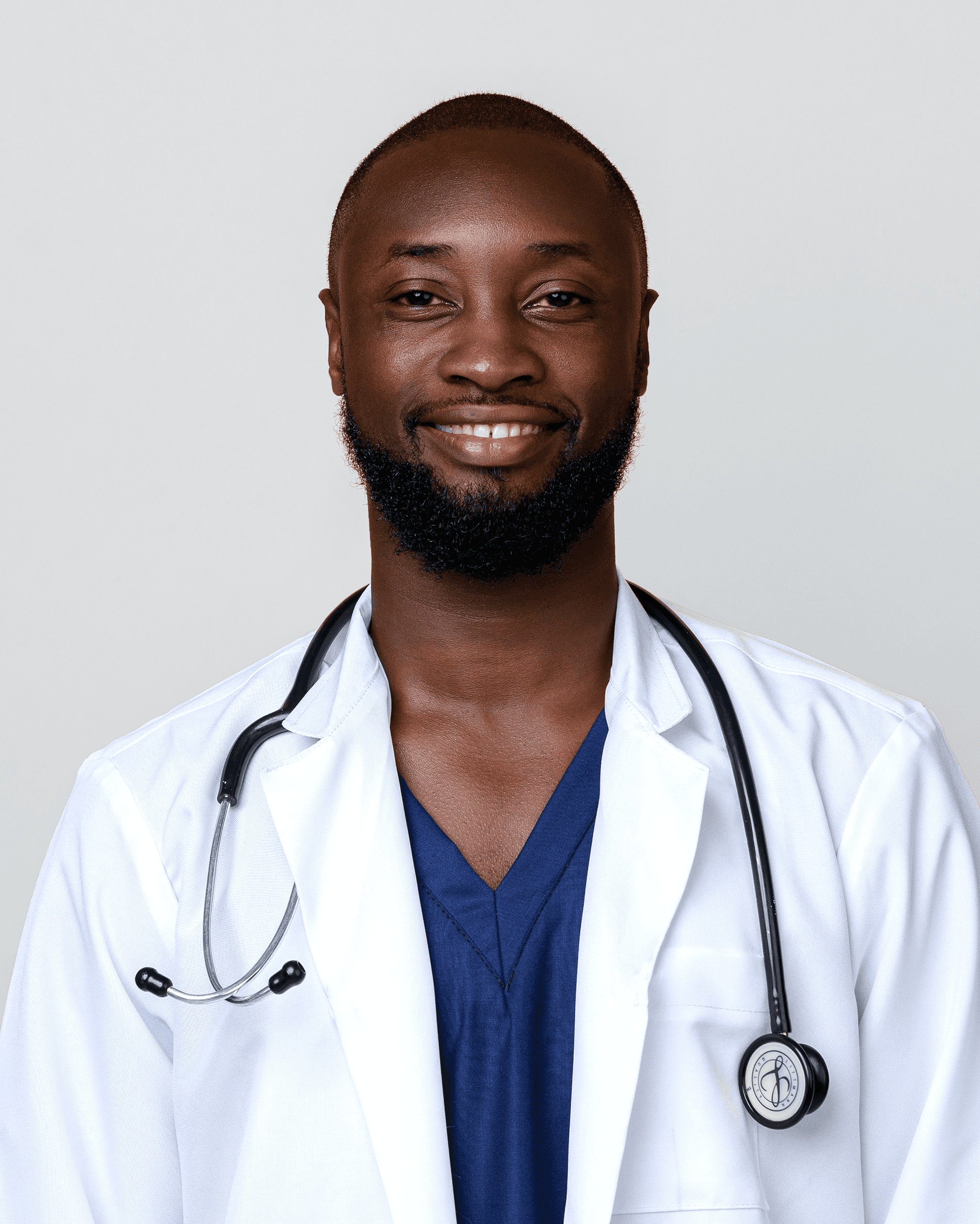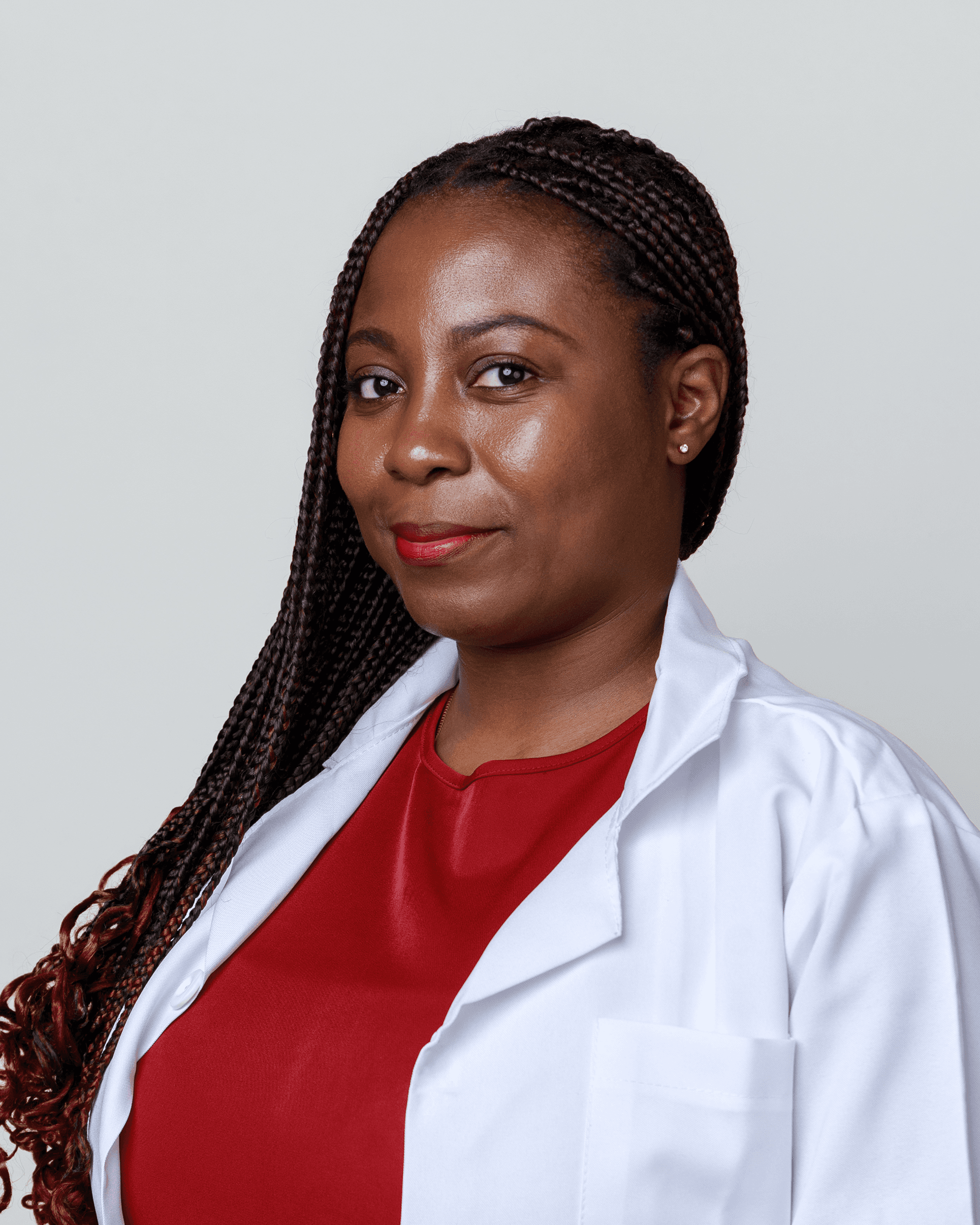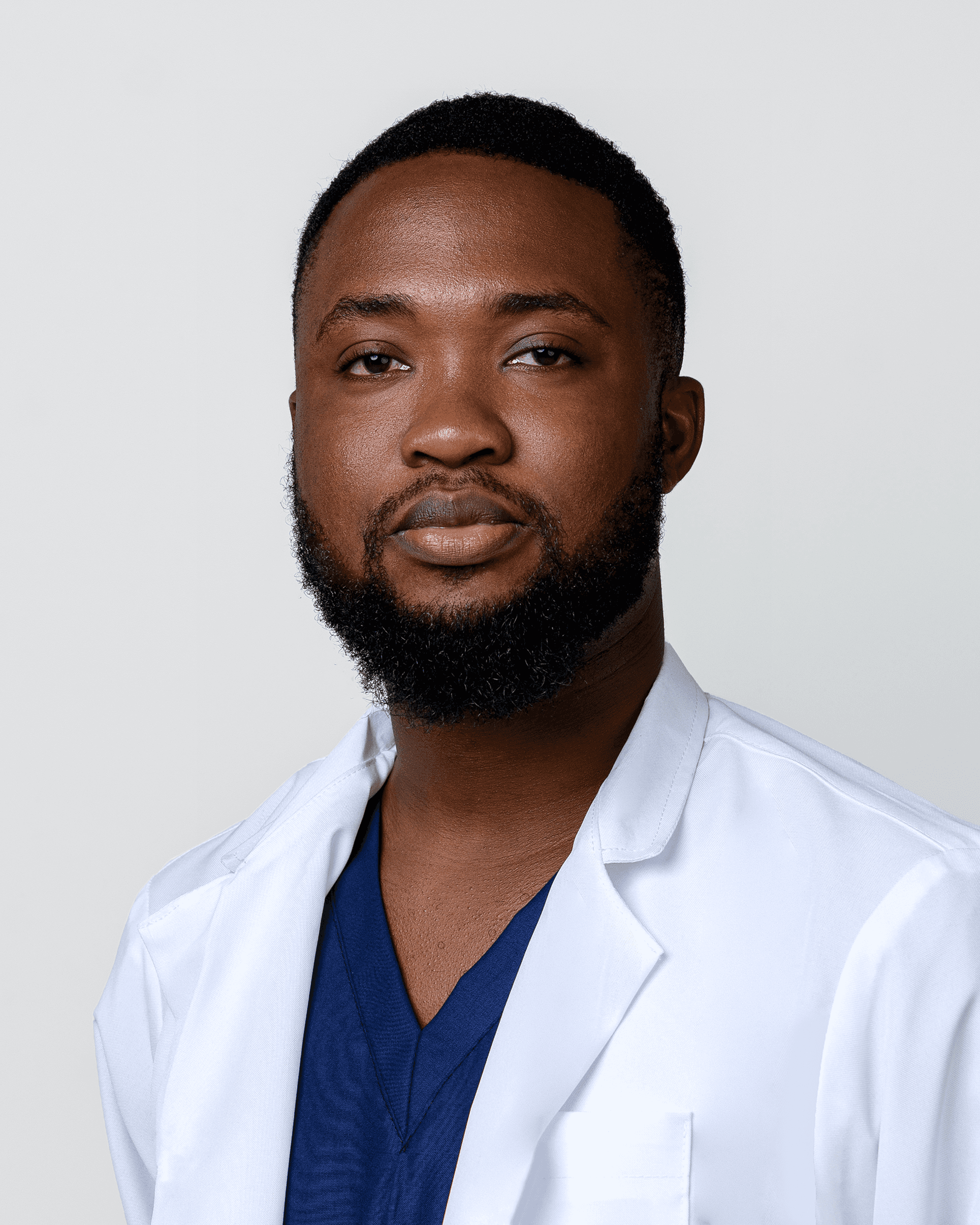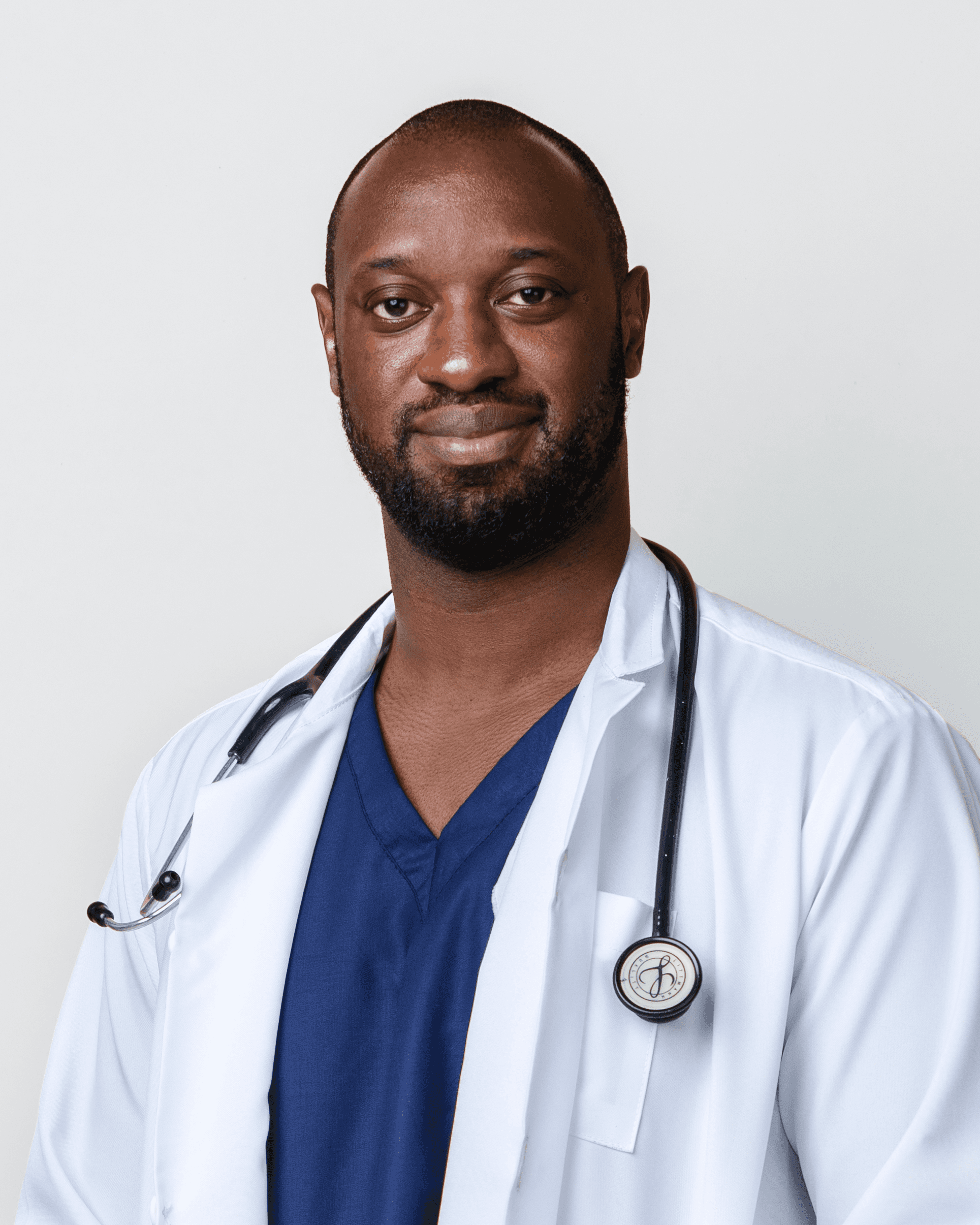
Get clear skin with acne treatment in Ghana
Speak to a doctor online
Speak to a doctor online
Speak to a doctor online
Buy medication from us
Buy medication from us
Buy medication from us
We deliver anywhere in Ghana
We deliver anywhere in Ghana
We deliver anywhere in Ghana
4.6
Google Reviews
We've seen 47,746 patients and counting
Our doctors can help you take control of your acne
Our doctors treat you ONLINE from 32 Central High St, East Legon-Trasacco Estate, Accra
Our doctors can help you take control of your acne
Our doctors treat you ONLINE from 32 Central High St, East Legon-Trasacco Estate, Accra
Our doctors can help you take control of your acne
Our doctors treat you ONLINE from 32 Central High St, East Legon-Trasacco Estate, Accra
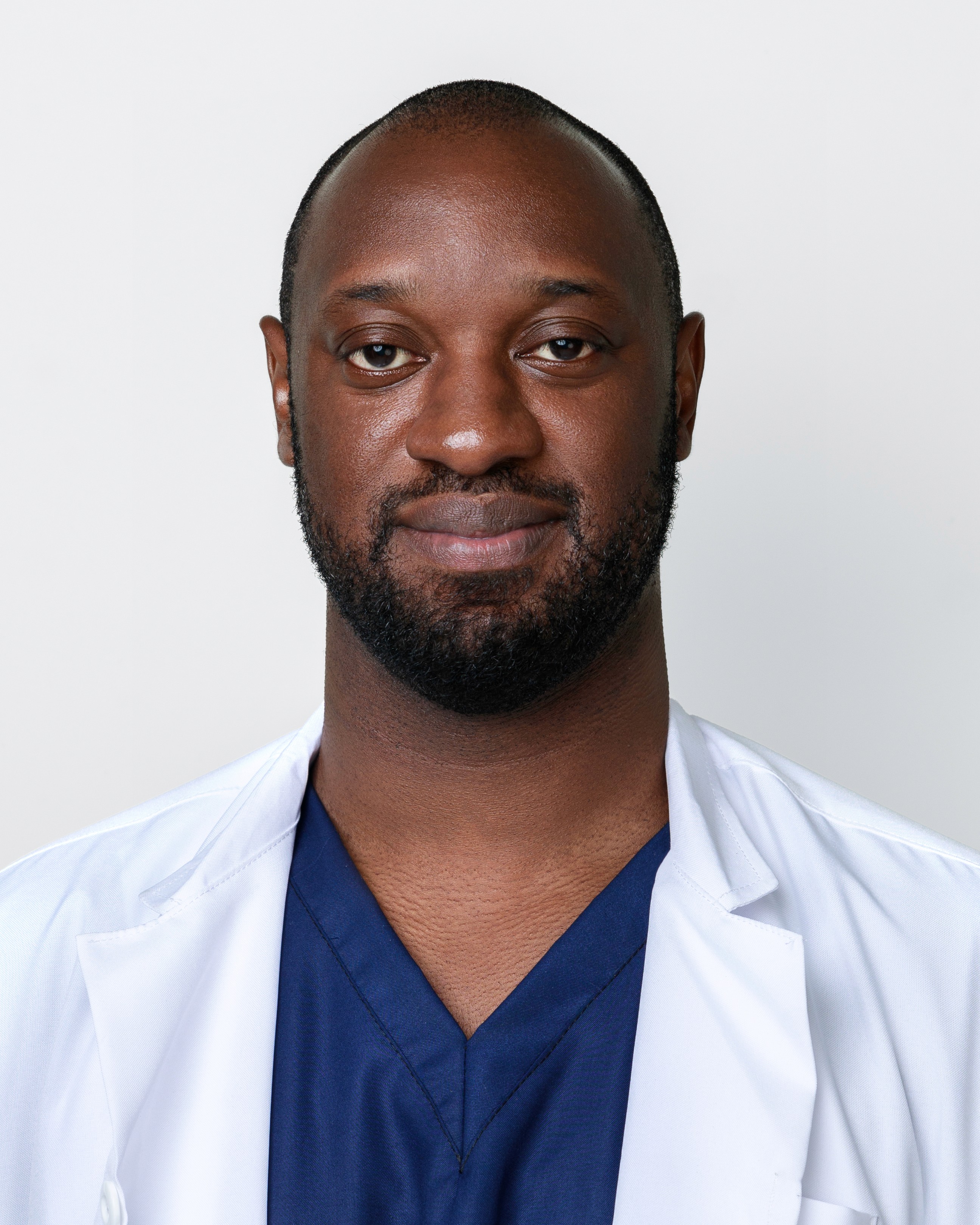

"Our team of qualified medical professionals is here to provide compassionate care for any condition, without judgement anytime, anywhere. Skip the waits and hospital trips and connect instantly with licensed doctors and get quality medications delivered to your door. From diagnosis to treatment and beyond, we’re with you every step of the way. Berry Health: Your phone. Your doctors. Your peace of mind."
Dr. Fredua Agyeman Akosa MD, MPH, MBA, FRSPH
Founder & CEO, Berry Health
Acne is treatable

Step 1
Tell us about your health
Answer a few questions to get an online diagnosis from a doctor.

Step 2
Speak to a doctor online for GHC135
Your doctor will create a personalized treatment plan just for you.

Step 3
Get your medication
We’ll deliver your medication to you anywhere in Ghana
Acne is treatable

Step 1
Tell us about your health
Answer a few questions to get an online diagnosis from a doctor.

Step 2
Speak to a doctor online for GHC135
Your doctor will create a personalized treatment plan just for you.

Step 3
Get your medication
We’ll deliver your medication to you anywhere in Ghana
Acne is treatable

Step 1
Tell us about your health
Answer a few questions to get an online diagnosis from a doctor.

Step 2
Speak to a doctor online for GHC135
Your doctor will create a personalized treatment plan just for you.

Step 3
Get your medication
We’ll deliver your medication to you anywhere in Ghana
We've seen 47,746 patients and counting
4.6
Google Reviews
"Normal"

ANTWI Patrick
Google Review
We've seen 47,746 patients and counting
4.6
Google Reviews
"Normal"

ANTWI Patrick
Google Review
We've seen 47,746 patients and counting
4.6
Google Reviews
"Normal"

ANTWI Patrick
Google Review
Frequently Asked Questions
Learn about acne
What is acne?
Acne is a common skin condition that can show up as reddened bumps on the affected area. When skin pores are blocked by dead skin cells, bacteria and oil, acne can occur.
How common is acne?
Over 1.6 million Ghanaians struggle with acne every year.
What causes acne?
Skin glands produce oil known as sebum, to moisturize it. Pimples occur as a result of skin glands overproducing this sebum, as well as skin glands getting blocked by dead skin cells The pimple can also be further infected by a bacteria that grows normally on the skin, known as Cutibacterium Acnes, leading to worsening of the pimple Blockage of hair follicles and subsequent infection of the fluid by bacteria occurs with the use of heavy oil-based hair and skin products Excessive sebum production can be stimulated by hormones that are produced in high amounts during puberty, pregnancy, in people taking oral contraceptive pills or steroids for bodybuilding
What can I do to prevent acne?
Stick to a good skincare routine Clean your makeup before you go to bed Avoid heavy use of oil based products on your face
What are symptoms of acne?
There are different ways acne can show on the skin: Acne may start as a sudden appearance of bumpy rashes with areas of reddening especially on the face. It may also appear on the chest, back, and buttocks. A single breakout of an acne is called a comedo. However several breakouts in the same area are called comedones Comedones are basically blocked skin pores with dead skin cells, bacteria and oil, that appear as bumps. They may have the colour of your skin, or appear dark (blackheads) or white (whiteheads) These bumps can get infected with bacteria known as Cutibacterium acnes. When this happens, they become inflamed and painful as the body produces chemicals to fight the bacteria. These bumps are now called papules As the body continues to fight the bacteria, the dead bacteria and chemicals/antibodies produced collect as fluid within the bump. This fluid collection is known as pus. Acne rashes in this stage are referred to as Pustules Acne can also appear as large lumps that may be painful The acne can cause dark patches or spots on the skin, known as hyperpigmentation
What are treatments for acne?
Mild acne can be treated with over-the-counter creams and lotions for spot removal. These help to dry out existing acne and exfoliate the skin to prevent bacteria that causes acne from clogging the pores. More serious cases may require the help of a dermatologist to prescribe a remedy to reduce symptoms and prevent acne from becoming more severe, possibly leaving permanent scarring.
What is acne?
Acne is a common skin condition that can show up as reddened bumps on the affected area. When skin pores are blocked by dead skin cells, bacteria and oil, acne can occur.
How common is acne?
Over 1.6 million Ghanaians struggle with acne every year.
What causes acne?
Skin glands produce oil known as sebum, to moisturize it. Pimples occur as a result of skin glands overproducing this sebum, as well as skin glands getting blocked by dead skin cells The pimple can also be further infected by a bacteria that grows normally on the skin, known as Cutibacterium Acnes, leading to worsening of the pimple Blockage of hair follicles and subsequent infection of the fluid by bacteria occurs with the use of heavy oil-based hair and skin products Excessive sebum production can be stimulated by hormones that are produced in high amounts during puberty, pregnancy, in people taking oral contraceptive pills or steroids for bodybuilding
What can I do to prevent acne?
Stick to a good skincare routine Clean your makeup before you go to bed Avoid heavy use of oil based products on your face
What are symptoms of acne?
There are different ways acne can show on the skin: Acne may start as a sudden appearance of bumpy rashes with areas of reddening especially on the face. It may also appear on the chest, back, and buttocks. A single breakout of an acne is called a comedo. However several breakouts in the same area are called comedones Comedones are basically blocked skin pores with dead skin cells, bacteria and oil, that appear as bumps. They may have the colour of your skin, or appear dark (blackheads) or white (whiteheads) These bumps can get infected with bacteria known as Cutibacterium acnes. When this happens, they become inflamed and painful as the body produces chemicals to fight the bacteria. These bumps are now called papules As the body continues to fight the bacteria, the dead bacteria and chemicals/antibodies produced collect as fluid within the bump. This fluid collection is known as pus. Acne rashes in this stage are referred to as Pustules Acne can also appear as large lumps that may be painful The acne can cause dark patches or spots on the skin, known as hyperpigmentation
What are treatments for acne?
Mild acne can be treated with over-the-counter creams and lotions for spot removal. These help to dry out existing acne and exfoliate the skin to prevent bacteria that causes acne from clogging the pores. More serious cases may require the help of a dermatologist to prescribe a remedy to reduce symptoms and prevent acne from becoming more severe, possibly leaving permanent scarring.
What is acne?
Acne is a common skin condition that can show up as reddened bumps on the affected area. When skin pores are blocked by dead skin cells, bacteria and oil, acne can occur.
How common is acne?
Over 1.6 million Ghanaians struggle with acne every year.
What causes acne?
Skin glands produce oil known as sebum, to moisturize it. Pimples occur as a result of skin glands overproducing this sebum, as well as skin glands getting blocked by dead skin cells The pimple can also be further infected by a bacteria that grows normally on the skin, known as Cutibacterium Acnes, leading to worsening of the pimple Blockage of hair follicles and subsequent infection of the fluid by bacteria occurs with the use of heavy oil-based hair and skin products Excessive sebum production can be stimulated by hormones that are produced in high amounts during puberty, pregnancy, in people taking oral contraceptive pills or steroids for bodybuilding
What can I do to prevent acne?
Stick to a good skincare routine Clean your makeup before you go to bed Avoid heavy use of oil based products on your face
What are symptoms of acne?
There are different ways acne can show on the skin: Acne may start as a sudden appearance of bumpy rashes with areas of reddening especially on the face. It may also appear on the chest, back, and buttocks. A single breakout of an acne is called a comedo. However several breakouts in the same area are called comedones Comedones are basically blocked skin pores with dead skin cells, bacteria and oil, that appear as bumps. They may have the colour of your skin, or appear dark (blackheads) or white (whiteheads) These bumps can get infected with bacteria known as Cutibacterium acnes. When this happens, they become inflamed and painful as the body produces chemicals to fight the bacteria. These bumps are now called papules As the body continues to fight the bacteria, the dead bacteria and chemicals/antibodies produced collect as fluid within the bump. This fluid collection is known as pus. Acne rashes in this stage are referred to as Pustules Acne can also appear as large lumps that may be painful The acne can cause dark patches or spots on the skin, known as hyperpigmentation
What are treatments for acne?
Mild acne can be treated with over-the-counter creams and lotions for spot removal. These help to dry out existing acne and exfoliate the skin to prevent bacteria that causes acne from clogging the pores. More serious cases may require the help of a dermatologist to prescribe a remedy to reduce symptoms and prevent acne from becoming more severe, possibly leaving permanent scarring.
Learn about Berry Health
What is Berry Health?
Berry Health is an online medical service providing private consultations, medications, and nationwide delivery throughout Ghana.
What health services do you offer?
We specialise in sexual health, mental health, and dermatology (including beard, hair, and nails). Whatever condition you’re suffering from, we’ll ask some simple questions and provide you with a diagnosis in minutes. If you need medications, we’ll deliver them wherever you want within the country, discreetly, and on time.
How does online healthcare or telehealth work?
Just like your local GP, we’re here to support you with expert, confidential advice and treatment but without the travel and waiting time. You can reach us whether you’re relaxing at home or hard at work. With pick up in clinic or standard or express delivery, you’ll get fast access to the treatment you need.
What can you tell me about your doctors?
All of our doctors, therapists, and medical advisors live and work in Ghana. They have degrees from prestigous programmes like the Univerity of Ghana, Univeristy of Cape Coast, and Yale University. Together they have decades of experience in medical practice.
Can I access Berry Health anywhere in Ghana?
Absolutely! Our platform is accessible nationwide, allowing you to connect with qualified healthcare professionals from the comfort of your home. You can buy medications from us and we'll deliver it to you anywhere in Ghana.
What is Berry Health?
Berry Health is an online medical service providing private consultations, medications, and nationwide delivery throughout Ghana.
What health services do you offer?
We specialise in sexual health, mental health, and dermatology (including beard, hair, and nails). Whatever condition you’re suffering from, we’ll ask some simple questions and provide you with a diagnosis in minutes. If you need medications, we’ll deliver them wherever you want within the country, discreetly, and on time.
How does online healthcare or telehealth work?
Just like your local GP, we’re here to support you with expert, confidential advice and treatment but without the travel and waiting time. You can reach us whether you’re relaxing at home or hard at work. With pick up in clinic or standard or express delivery, you’ll get fast access to the treatment you need.
What can you tell me about your doctors?
All of our doctors, therapists, and medical advisors live and work in Ghana. They have degrees from prestigous programmes like the Univerity of Ghana, Univeristy of Cape Coast, and Yale University. Together they have decades of experience in medical practice.
Can I access Berry Health anywhere in Ghana?
Absolutely! Our platform is accessible nationwide, allowing you to connect with qualified healthcare professionals from the comfort of your home. You can buy medications from us and we'll deliver it to you anywhere in Ghana.
What is Berry Health?
Berry Health is an online medical service providing private consultations, medications, and nationwide delivery throughout Ghana.
What health services do you offer?
We specialise in sexual health, mental health, and dermatology (including beard, hair, and nails). Whatever condition you’re suffering from, we’ll ask some simple questions and provide you with a diagnosis in minutes. If you need medications, we’ll deliver them wherever you want within the country, discreetly, and on time.
How does online healthcare or telehealth work?
Just like your local GP, we’re here to support you with expert, confidential advice and treatment but without the travel and waiting time. You can reach us whether you’re relaxing at home or hard at work. With pick up in clinic or standard or express delivery, you’ll get fast access to the treatment you need.
What can you tell me about your doctors?
All of our doctors, therapists, and medical advisors live and work in Ghana. They have degrees from prestigous programmes like the Univerity of Ghana, Univeristy of Cape Coast, and Yale University. Together they have decades of experience in medical practice.
Can I access Berry Health anywhere in Ghana?
Absolutely! Our platform is accessible nationwide, allowing you to connect with qualified healthcare professionals from the comfort of your home. You can buy medications from us and we'll deliver it to you anywhere in Ghana.
Still need more help? You can chat with our customer service team via WhatsApp or SMS at +233 55 422 0883
Do you need help with acne?
Do you need help with acne?
Do you need help with acne?
By using this website, you accept our Terms & Conditions, Privacy Policy and Refund Policy
Berry Health is proud to be licensed by the Health Facility Regulatory Agency and the Data Protection Commission
32 Central High St, East Legon-Trasacco Estate, Accra
© 2024 Berry Health All rights reserved.
By using this website, you accept our Terms & Conditions, Privacy Policy and Refund Policy
Berry Health is proud to be licensed by the Health Facility Regulatory Agency and the Data Protection Commission
32 Central High St, East Legon-Trasacco Estate, Accra
© 2024 Berry Health All rights reserved.
By using this website, you accept our Terms & Conditions, Privacy Policy and Refund Policy
Berry Health is proud to be licensed by the Health Facility Regulatory Agency and the Data Protection Commission
32 Central High St, East Legon-Trasacco Estate, Accra
© 2024 Berry Health All rights reserved.

